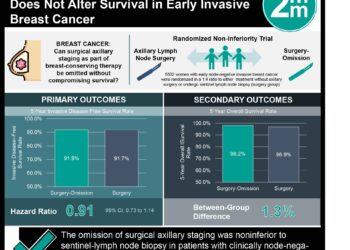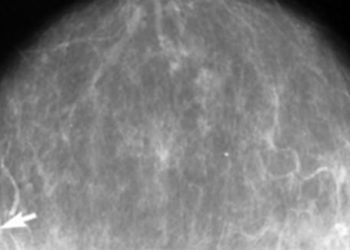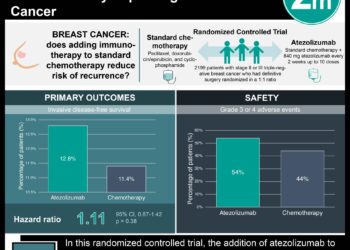Racial disparities in breast cancer survival associated with biologic tumor differences
1. A significant difference in the early diagnosis of breast cancer and mortality was found between non-Hispanic white, black, and Asian women.
2. The majority of the difference was due to differences in biologic characteristics of the tumor – ER and PR-positive tumors were associated with earlier diagnosis, better survival, and were more prevalent in racial groups with more favorable prognosis.
Evidence Rating Level: 2 (Good)
Study Rundown: The incidence and survival of breast cancer has long been known to vary by racial and ethnic groups in the United States. This study sought to determine whether the disparities were due to differences in early detection or secondary to intrinsic biological characteristics of the tumor. Results showed that the difference in diagnosis of Stage I breast cancer and the 7-year mortality rate between ethnicities was primarily due to the differences in biologic characteristics of the tumor.
Strengths of this study included the large sample size of women in the United States and the inclusion of Asian and Hispanic ethnicities. Although the study controlled for income discrepancies between ethnicities, it did not expand on demographics to assess for differences in access to healthcare, nutritional status and obesity, or differences in diet – variables that may play a role in detecting cancer earlier and reducing mortality. In summary, this study effectively showed that a significant portion of the differences found between ethnicities in regards to early detection of breast cancer and mortality is due to the differences in biologic characteristics of the tumor itself, and less so due to income inequality. By understanding the cause of the differences, more effective strategies can be developed to obtain better outcomes in women of all ethnicities.
Click to read the study, published today in JAMA
Click to read an accompanying editorial, published today in JAMA
Relevant Reading: Meta-analysis of survival in African American and white American patients with breast cancer: ethnicity compared with socioeconomic status.
In-Depth [retrospective cohort study]: This is a retrospective cohort study that looked at 373,563 women who were diagnosed with breast cancer between 2004 and 2011. Information regarding ethnicity, race, income, demographics, cancer progression at diagnosis, and biological characteristics of the cancer was collected. Racial and ethnic groups were classified as non-Hispanic white, Hispanic white, black, Chinese, Japanese, South Asian, other Asian, and other ethnicity.
Data analysis showed that Japanese women, compared to non-Hispanic whites, were more likely to be diagnosed with Stage I cancer (OR 1.23; 95%CI 1.15-1.31) while blacks were less likely to be diagnosed with Stage I cancer (OR 0.65; 95%CI 0.64-0.67). Out of all the groups, black women were most likely to be diagnosed at Stage IV. This data correlated with the prevalence of estrogen-receptor (ER) and progesterone-receptor (PR) positive tumors, which were most prevalent in Japanese women and least prevalent in black women. Black women also were most likely to present with triple-negative breast cancers, which has a worse survival rate than cancers that are hormone-positive. Controlling for ER status significantly reduced the difference in mortality and early diagnosis between ethnicities while adjusting for income differences did not.
More from this author: The CLARITY trial: Adding clopidogrel to STEMI management [Classics Series], Aspirin vs warfarin in atherosclerotic intracranial stenosis [Classics Series], The ARISTOTLE trial: Apixaban vs warfarin in atrial fibrillation [Classics Series], The TRITON trial: Prasugrel vs clopidogrel in ACS [Classics Series], Vena caval filters in pulmonary embolism prophylaxis [Classics Series]
Image: PD
©2015 2 Minute Medicine, Inc. All rights reserved. No works may be reproduced without expressed written consent from 2 Minute Medicine, Inc. No article should be construed as medical advice and is not intended as such by the authors, editors, staff or by 2 Minute Medicine, Inc.






